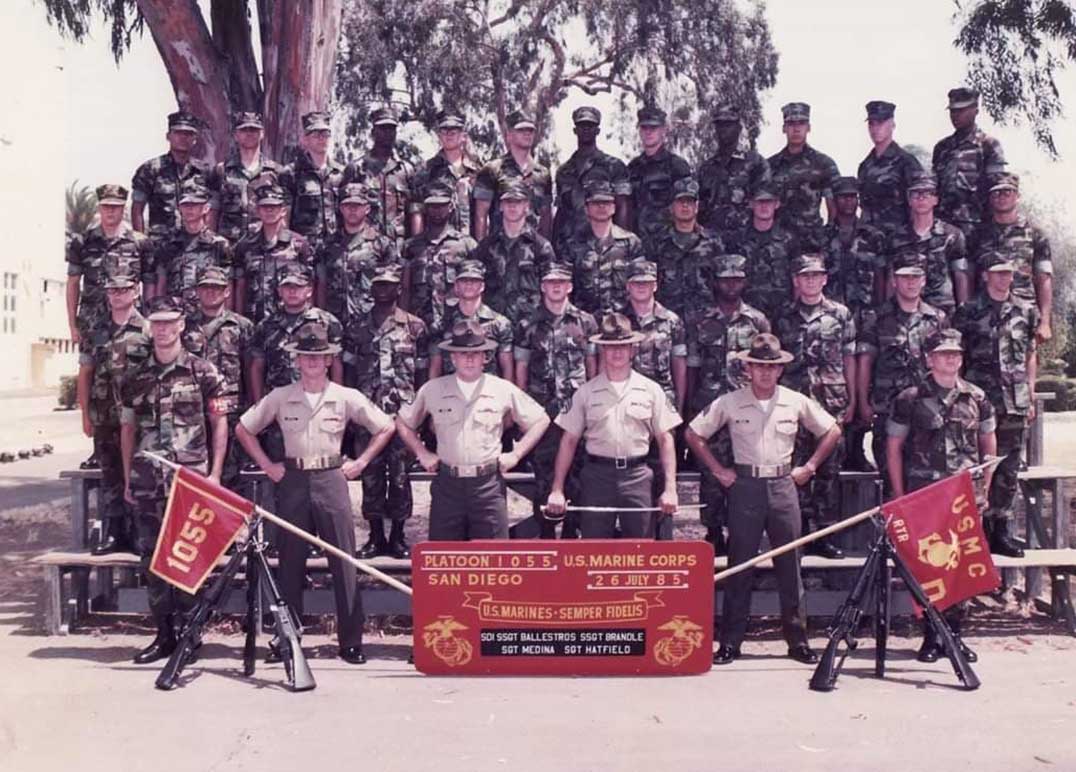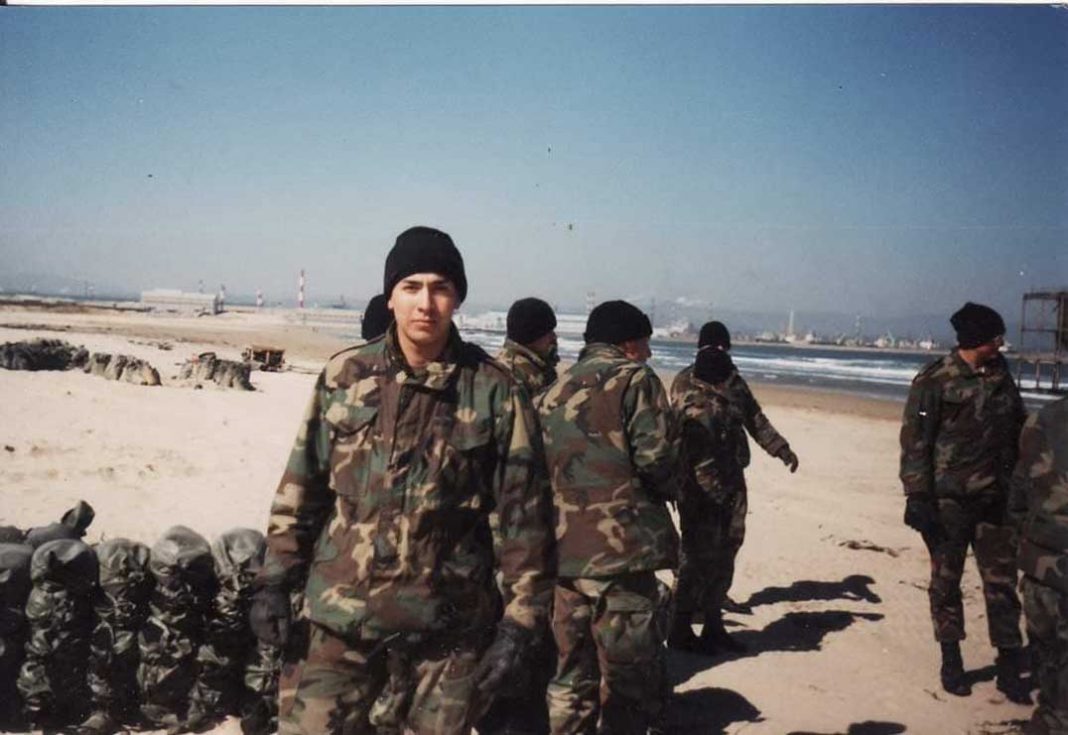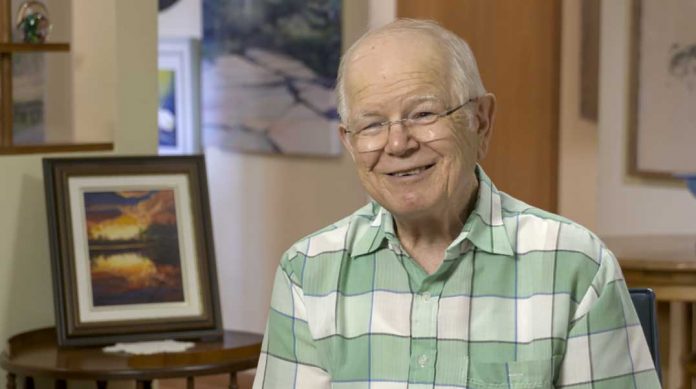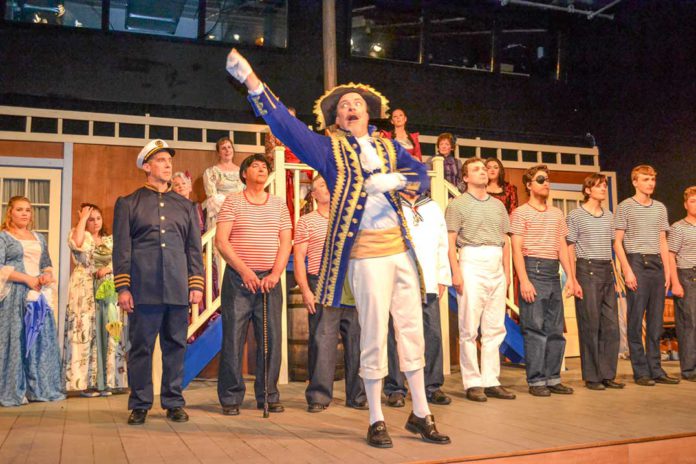WIIKWEMKOONG – It was a dark time in 1985 for Wayne Pitawanakwat. He had just lost his best friend to suicide and he found himself feeling lost and adrift when his cousin came to visit.
“My buddy had just committed suicide and I was feeling kinda lost,” he recalled. “We had been best friends since Grade 1 and we always hung out together. I guess I was pretty depressed myself.” Mr. Pitawanakwat’s cousin showed up with a suggestion that would turn the 18-year-old young man from Wiikwemkoong’s life around. “He said ‘would you like to join the marines?’,” recalled Mr. Pitawanakwat.
Originally, Mr. Pitawanakwat and a friend of his planned to join the Canadian Forces, but there was a serious catch. “At that time we were told that there was a two year waiting list,” he said. That was a lifetime away for such a young man, so he decided to look further afield.
“I joined up with the marines in Sault, Michigan,” he said. “I was 18 when it happened, five weeks later I was in boot camp.”
From the recruiting office in Sault, Michigan, Mr. Pitawanakwat went on to the coastal resort city of Petoskey. “After that it was Milwaukie, Wisconsin and MEPS (military entrance processing station) for several days of medical and aptitude testing to sort out where his talents could be best put to work.
“You had to be in top physical shape and they were making sure my body was fully functional,” he laughed. Then it was off to basic training in San Diego for 13 weeks. So, what was that like you might ask? “If you have seen the movie Full Metal Jacket, well, that’s just a little taste of what it was like,” he said. So, the marines are among the toughest soldiers in the military? “The toughest,” Mr. Pitawanakwat barks without a moment’s hesitation. Not an unexpected response given the reputation of the US Marine Corps.
Following boot camp, Mr. Pitawanakwat got a 30-day leave and then headed into his first tour of duty. He was working in a logistics role. “Loading supplies, mostly,” he said. “We loaded ships, trucks, helicopters and also were involved in beach assaults.” The marines, he notes, “are the first in on the ground.”
Mr. Pitawanakwat served two years in Japan and was involved in a number of training exercises and then was in South Korea for two tours of duty. “I was involved in Operation Team Spirit in January 1986 for three months and then again in 1987 for another three months.”
It wasn’t a cakewalk assignment.
“During that time we lived in tents,” he said. There were 12 men to a tent, which is a good thing because in the beginning they only had basic equipment. “It was 40 below and we had to wait for the stoves to catch up with us,” he laughed. “There were 12 of us in a tent, so it wasn’t that bad.”
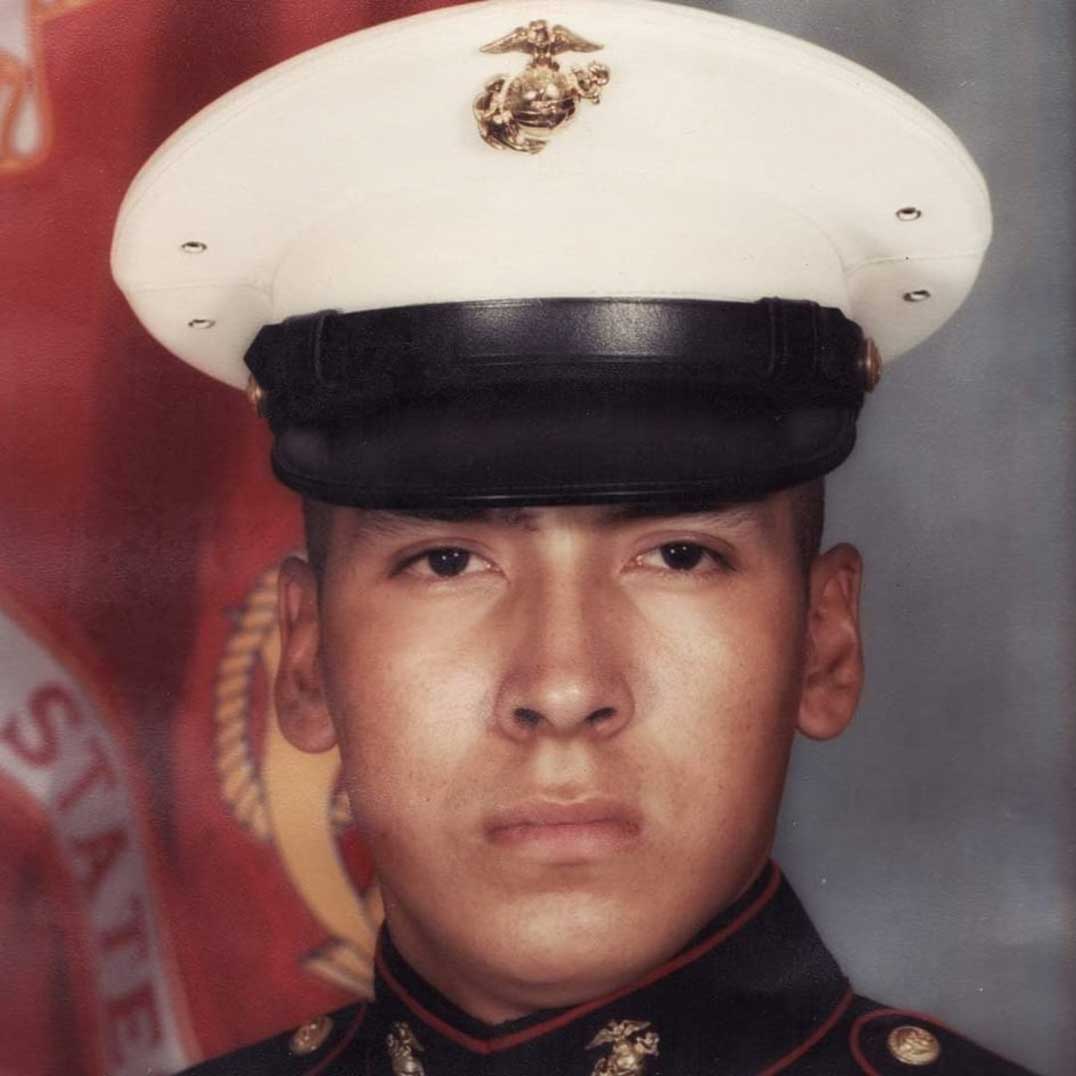
But South Korea has been at the tipping point in the Cold War for many decades. “It was a very challenging time,” he admits. “But for a kid from Wiikwemkoong, basically a small town kid, it was pretty exciting. I enjoyed my time in the service. Most of the guys I know who were in the marines would go back in at a heartbeat.”
Following Mr. Pitawanakwat’s second year of his second tour in Japan he was sent on a new mission. “I wanted to stay for another year,” he said. “I didn’t want to leave, I wanted to stay with my team.”
The bonds formed in the military are strong, especially in the US Marine Corps.
“I keep in touch with most of the guys,” he said. “I was just down visiting a buddy in Ohio who has cancer. I will be going down to visit him again, he is in chemo now.”
Mr. Pitawanakwat’s next assignment was to North Carolina, where he became an assistant instructor for the combat engineers, teaching his students the skills needed to load helicopters heading into combat zones. “Now that was a lot of fun,” he admitted. “We practiced night infiltration and I got to blow up all kinds of stuff.” Not only was he firing the standard M-16s, but light machine guns like the M60 and 50 calibre machine guns like the M50 and rocket launchers. “Basically, everything the Marine Corps had at the time.”
Mr. Pitawanakwat found his skillset travelling into hitherto unthought-of realms.
“I was a company clerk, a troop handler, a volleyball instructor in the evenings, I was even a bailiff chasing down prisoners,” he said.
Mr. Pitawanakwat mustered out officially in 1993. He served eight years, four years in active service and four years in the reserve.
“When the first Gulf War started I was living in Sudbury,” he said. “I got the call to get my gear ready, I was going to war. They gave me two weeks to tie up loose ends.”
Two weeks later, Mr. Pitawanakwat had given notice for his apartment, divested himself of furniture and unnecessary clothes and was essentially ready to go.
“I got the call to stand down,” he said. “We have everything under control.”
So he started over.
But the US Marine has no regrets.
In the succeeding years, Mr. Pitawanakwat has attended high school career sessions on request and is a familiar sight at Island powwows and he encourages youth to enlist in the military.
“You learn discipline,” he said. “It was very interesting and I had a great time. Like I said, any marine I know would go back in.”
